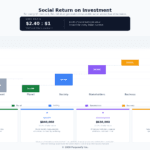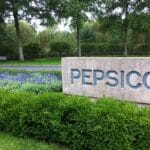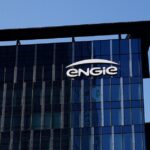Pernod Ricard’s Net-Zero Targets Approved by SBTi, Aligning with 1.5°C Climate Goal

Pernod Ricard announces that its near- and long-term science-based GHG emissions reduction targets in line with a 1.5°C trajectory have been approved by the Science Based Targets initiative (SBTi) with the following timeline
- In the near-term, Pernod Ricard commits to reducing absolute scope 1 & 2 emissions by 54% by FY30 from a FY22 baseline. The Group also commits to reducing absolute scope 3 FLAG (forest, land and agriculture) emissions by 30.3% and non-FLAG emissions (purchased goods and services, upstream transportation and distribution) by 25% within the same timeframe. Pernod Ricard also commits to no deforestation across its primary deforestation-linked commodities by the end of 2025.
- In the long term, Pernod Ricard commits to reducing its absolute scope 1 & 2 emissions and its scope 3 non-FLAG emissions by 90% by FY50 from a FY22 baseline. Pernod Ricard also commits to reducing absolute scope 3 FLAG emissions by 72% within the same timeframe.
With 95% of its emissions linked to its scope 3 in FY23 (including 49% linked to agriculture, 25% to packaging, and 8% to transport), these new science-based targets aligned with a 1.5°C trajectory demonstrate Pernod Ricard’s ambition to tackle emissions on its own operation sites and throughout its value chain by working closely with its suppliers.
This ambition will be achieved through robust carbon reduction roadmaps and measures including:
- Distilleries: Procuring renewable electricity, moving to alternative energy sources (biomass, biofuels), using new technologies including for heat recovery, and driving energy efficiency.
- Packaging: Decreasing bottle weight, augmenting recycled content, innovating and exploring new materials and developing closed-loop distribution models.
- Transport and logistics: Optimizing shipping loads, switching to electric or biofuel-powered transportation and exploring alternative modes of transportation.
- Agriculture: Implementing regenerative agricultural practices aimed at restoring natural ecosystems, reducing carbon emissions and enhancing carbon sequestration in the soil.
Related Article: SBTi Announces Major Revision of Corporate Net-Zero Standard, Outlines Objectives and Timeline
Maria Pia De Caro – EVP, Integrated Operations and Sustainability, declares: “The validation of our new carbon reduction targets by the Science Based Targets initiative (SBTi) is a recognition of our teams’ efforts to build strong carbon reduction roadmaps across our operations and throughout our value chain. The world is facing increased social and environmental pressures which are urging us to act faster. Our net-zero science-based targets give us the right ambition and drive to further the progress we have made so far and play our part as a wine and spirits leader in addressing the challenge of climate change”.












